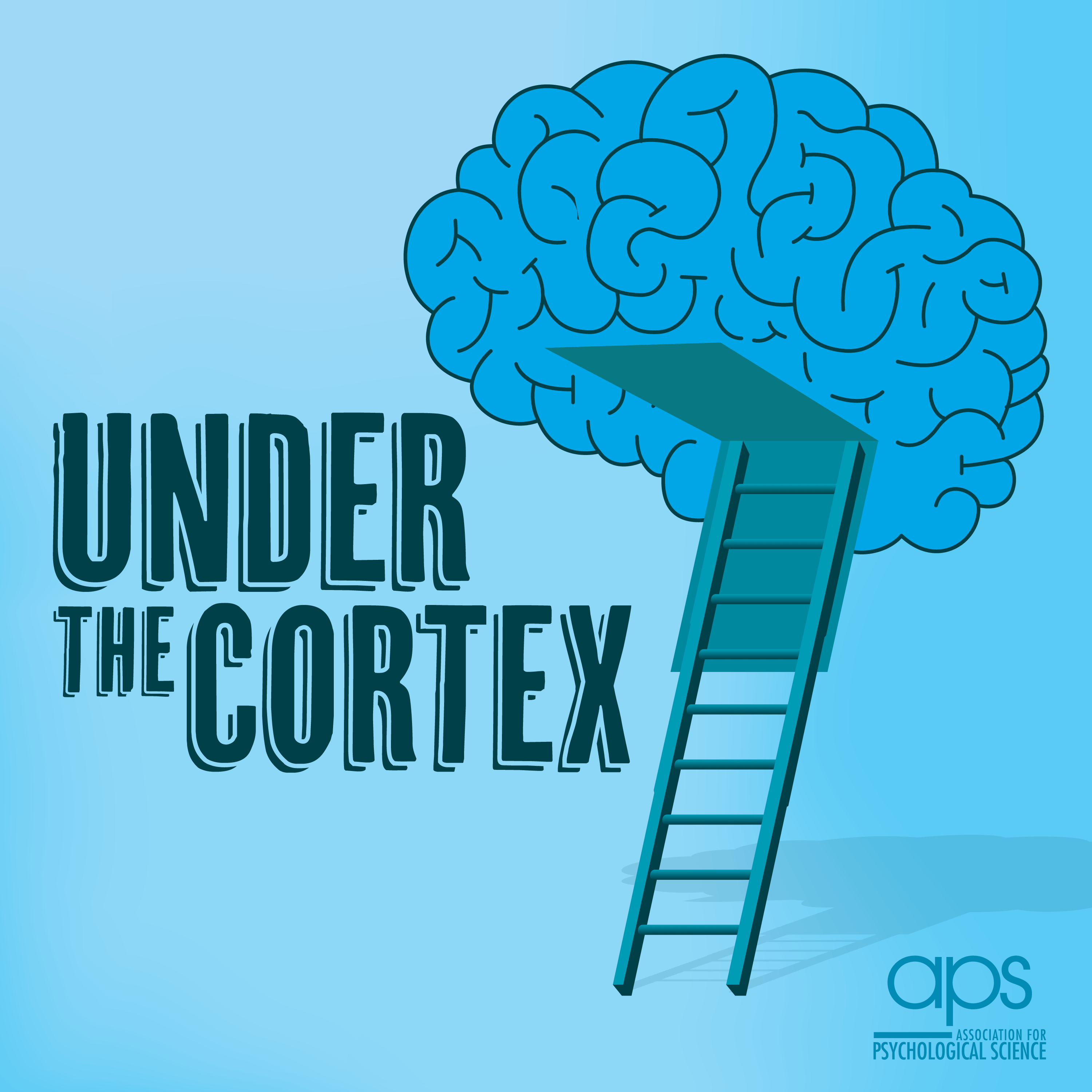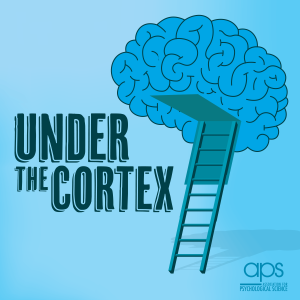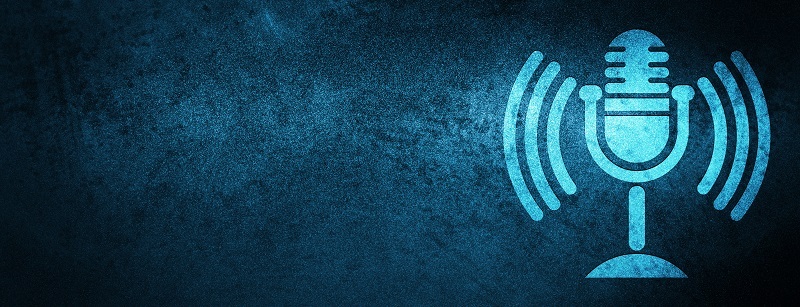
234.5K
Downloads
152
Episodes
The podcast of the Association for Psychological Science. What does science tell us about the way we think, behave, and learn about the world around us? Under the Cortex is proudly sponsored by Macmillan Learning Psychology, where captivating content meets genuine engagement. Our authors, who are seasoned educators, understand today’s teaching challenges. We aim to craft and present both information and interactive tools that truly connect with students. Whether in-person or online, we support instructors and inspire students. Macmillan Learning Psychology: Engaging Every Student, Supporting Every Instructor, Setting New Standards for Teaching and Learning.
Episodes

Thursday Sep 07, 2023
Loneliness Across the Globe: A Life-Span Approach
Thursday Sep 07, 2023
Thursday Sep 07, 2023
Did you know that loneliness is different from social isolation? Psychologists define loneliness as a subjective concept which is related to one’s own expectations.
In this episode, Under the Cortex hosts Samia Akther Khan, PhD candidate from King’s College London, whose research examines the feeling of loneliness across lifespan. The conversation with APS’s Özge G. Fischer-Baum focuses on the difference between loneliness and social isolation and highlights six key social relationship expectations of older adults: (1) availability of social contacts, (2) receiving care and support, (3) intimacy and understanding, (4) enjoyment and shared interests, (5) generativity and contribution, and (6) being respected and valued. Along with other implications, Samia discusses the importance of global research and specific challenges that global research teams face.
Samia Akhtar Khan also published on this topic in APS’s Perspectives with co-authors Matthew Prina, Gloria Hoi-Yan Wong, Rosie Mayston, and Leon Li. The article is titled, Understanding and Addressing Older Adults’ Loneliness: The Social Relationship Expectations Framework.

Thursday Aug 24, 2023
Thursday Aug 24, 2023
Psychology PhDs have skills broadly relevant for teaching, industry, and government. They are integral to producing basic research and evidence-based solutions for policy and industry. Only about half of psychology PhDs are hired in academia, but psychology graduate training in the United States has largely retained the classic graduate training model of a direct path to an academic job. It's time to change that, says APS President Wendy Wood.

Thursday Aug 10, 2023
Best Of: Revisiting Episodes on the Myers-Briggs Test, the Grieving Brain, and More
Thursday Aug 10, 2023
Thursday Aug 10, 2023
At the height of the COVID-19 epidemic in 2020, the Association for Psychological Science joined countless other organizations around the world in turning to podcasts to share findings and conversations. The result is Under the Cortex, which now celebrates 100 episodes in which psychological scientists help us understand some of their most interesting and impactful new research. This special episode is a bit of a greatest hits compilation, featuring clips from six of our favorite episodes to date.
- Dan McAdams provides a skeptical deep dive on the Myers Briggs test.
- Mary Frances O'Connor discusses what happens in the grieving brain.
- APS's Charles Blue and Ludmila Nunes debunk some common myths of psychological science.
- Nathan Cheek explores some of the unintended negative consequences of restricting freedoms.
- Eiko Fried makes the case against the tendency to oversimplify mental health diagnoses.
- And Andrew Devendorf examines the bias within the research community against "me-search.”
You can hear the rest of these interviews by clicking on the links above. And subscribe to all episodes of Under the Cortex by visiting your favorite podcast app or the APS podcast page at psychologicalscience.org.

Thursday Jul 27, 2023
Understanding Childhood Adversity Across Time and Cultures
Thursday Jul 27, 2023
Thursday Jul 27, 2023
Scientists usually expect childhood to be nurturing, safe, and characterized by high levels of caregiver investment. However, evidence from history, anthropology, and primatology can challenge this view. Throughout human evolution, children have faced threats and deprivation, at varied levels across space and time. And these varied levels of exposure to adversity—which over time were higher than is typical in industrialized societies—likely favored a high degree of phenotypic plasticity, or the ability to tailor development to different conditions.
Willem Frankenhuis, an evolutionary and developmental psychologist at Utrecht University, and Dorsa Amir, a developmental scientist at the University of California, Berkeley, have published research synthesizing evidence from history, anthropology, and primatology relevant to estimating childhood adversity across human evolution. These cross-cultural investigations have focused on three forms of threat (infanticide, violent conflict, and predation) and three forms of deprivation (social, cognitive, and nutritional). Willem and Dorsa discuss their findings, along with some implications, in this conversation with APS’s Ludmila Nunes. They have also published on this topic, and Willem also recently presented some of their findings at the 2023 APS Annual Convention in Washington D.C.
“What are the types of conditions that our ancestors experienced?” Dorsa asks. “And what does that perspective offer to us today in trying to better understand adversity?”

Thursday Jul 13, 2023
Nobody’s Fool: How to Avoid Getting Taken In
Thursday Jul 13, 2023
Thursday Jul 13, 2023
How can our habits of thinking make us vulnerable to deception? What characteristics of information make it more likely to manipulate us? And how can we spot deception before it’s too late?
In this episode of Under the Cortex, Daniel Simons and Christopher Chabris join APS’s Ludmila Nunes to answer these questions and more, drawing from their brand new book: Nobody's Fool: Why We Get Taken In and What We Can Do About It. Daniel Simons is a cognitive scientist and professor of psychology at the University of Illinois, where he researches the limits of human awareness and memory. Christopher Chabris is a cognitive scientist who has taught at Union College and Harvard University. In 2010, they co-authored the best-selling book The Invisible Gorilla: How Our Intuitions Deceive Us, in which they wrote about cognitive illusions.

Thursday Jun 29, 2023
Carl Hart on Clinicians’ Bias Toward Drug Use
Thursday Jun 29, 2023
Thursday Jun 29, 2023
Pervasive misconceptions about and bias against drug use in the United States have led to clinical norms that pathologize any use of certain kinds of drugs. This bias has harmful consequences. For instance, conflating substance use with substance disorder is used to justify curtailing certain people’s rights, which has broad consequences. Treating drug use as a brain disease reveals clinician bias. How can these misconceptions, and the actions they lead to, be corrected? And how can researchers and policymakers demystify drug use?
This episode of Under the Cortex features Carl Hart, a neuroscientist at Columbia University who has studied the behavioral and neuropharmacological effects of psychoactive drugs in humans. His lab attempts to understand factors that mediate drug use, to develop effective treatments, and to translate that knowledge into more humane drug policies.
In May, Carl spoke about some of his findings in a very popular presentation at the 2023 APS Annual Convention titled “Clinician Bias About Drug Use Contributes to Growing Restrictions on Liberty and Bodily Autonomy.” He explained how the inclination to think that any use of a certain drug, like cocaine or heroine, is pathological reveals a clinician bias. This conversation, with APS’s Ludmila Nunes, was recorded on-site at the convention shortly after Carl delivered his presentation.

Thursday Jun 15, 2023
Bringing Contexts In, Taking Racism Out: How to Improve Cognitive Psychology
Thursday Jun 15, 2023
Thursday Jun 15, 2023
Cognitive psychology studies universal processes such as memory, decision making, or emotions, for example. However, the theoretical, epistemological, and methodological assumptions that support the field’s longtime focus on studying “cognitive universals” might have resulted in a science of human cognition based on the performance and behavior of people who are predominantly White, English-speaking, and socially dominant. In other words, scientific racism has likely influenced the study of cognition. How can researchers reshape cognitive psychology to become more aware of the roles of culture and context?
Ayanna Thomas is a professor at Tufts University and lead author of an article published in Current Directions in Psychological Science that explores how psychological scientists can reshape the field of cognitive psychology and move toward well-developed theories of cognition in context. Ayanna joins APS’s Ludmila Nunes to discuss scientific racism in cognitive psychology.

Thursday Jun 01, 2023
Endless Love: You’ve Got Ideas About Consensual Nonmonogamy. They’re Probably Wrong
Thursday Jun 01, 2023
Thursday Jun 01, 2023
Consensually nonmonogamous relationships are defined by explicit mutual agreements to have multiple emotional, romantic, and/or sexual relationships. But is there really a type of person who engages in this type of relationship? And are these relationships actually lower in quality compared with monogamous relationships? Research has revealed several misconceptions about consensually nonmonogamous relationships and patterns of how others judge people in these relationships.
In this episode of the podcast, Amy C. Moors, psychologist who researches and teaches about LGBTQ+ issues, consensual non-monogamy, gender, and inclusion in higher education at the Kinsey Institute and Chapman University, demystifies common misconceptions about consensually nonmonogamous relationships. She explores this topic further in a recent article published in Current Directions in Psychological Science.

Thursday May 18, 2023
Psychology’s Role in the Criminalization of Blackness
Thursday May 18, 2023
Thursday May 18, 2023
The mass incarceration of Black people in the United States is gaining attention as a public health crisis with extreme mental-health implications. Despite Black Americans making up just 13% of the general U.S. population, Black people constitute about 38% of people in prison or jail. What does this have to do with psychological science? Well, historical efforts to oppress and control Black people in the United States helped shape definitions of crime but also mental illness. And, through its research and clinical practices, the field of psychological science might even have contributed to the perpetuation of anti-Blackness.
To speak about psychology’s contributions to anti-Blackness, this conversation features Evan Auguste, a researcher and professor at the University of Massachusetts, Boston, and Steven Kasparek, a graduate student at Harvard University, talking with APS’s Ludmila Nunes. Auguste and Kasparek co-authored a recent article published in Perspectives on Psychological Science that explored how psychology has contributed to anti-Blackness within psychological research, criminal justice, and mental health, and what scientists and practitioners can do to interrupt the criminalization of Blackness and redefine psychology’s relationship with justice.

Thursday May 04, 2023
Silver Linings in the Demographic Revolution
Thursday May 04, 2023
Thursday May 04, 2023
While we are fussing about the artificial-intelligence revolution, a demographic revolution may have much more radical consequences: There are more older people than ever in the world. In her last presidential column for the APS Observer, APS President Alison Gopnik, who studies learning and development at the University of California, Berkeley, writes about how psychological science may help us to understand and deal with the challenges that come with this increased longevity. An underexplored approach, she says, involves appreciating our brilliant, fragile young human learners as well as our wise, vulnerable, old human teachers, and then finding creative ways to bring the two groups together.
She reads her column in this episode.
